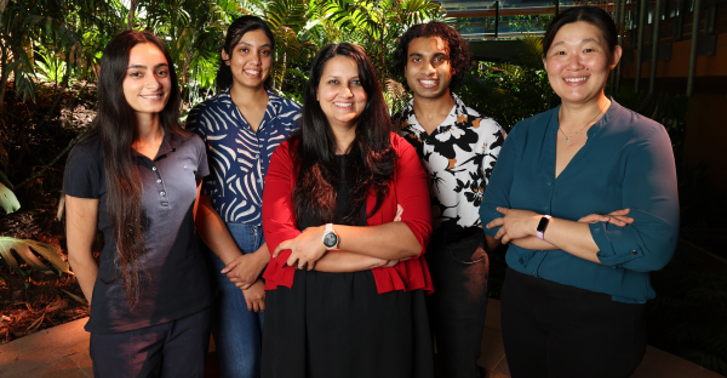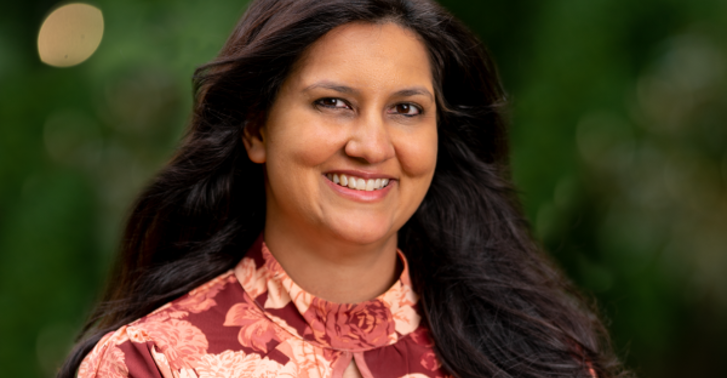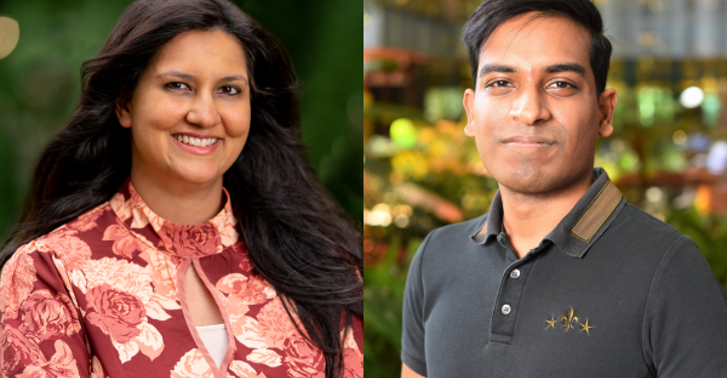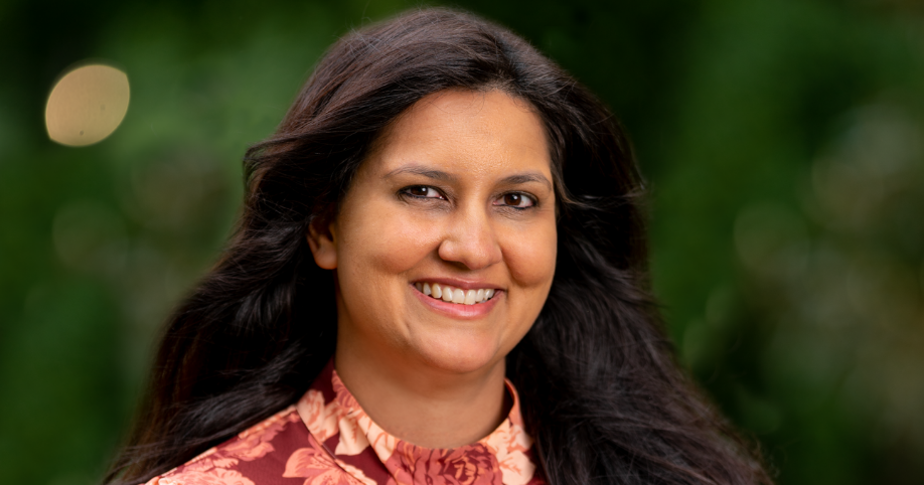
A research career defined by innovation, leadership and strong advocacy for equity has been recognised by The University of Queensland, with the academic promotion of Mater Research's Sumaira Hasnain to Professor.
Professor Hasnain, who earned her PhD from the University of Manchester in 2010, joined Mater Research as a postdoctoral fellow in 2011 and has rapidly progressed through the academic ranks ever since - becoming Leader of the Immunopathology Group Leader in 2018, being appointed Associate Professor in 2020, and now achieving the title of Professor.
Among her most significant scientific contributions was demonstrating for the first time that the immune system can control how certain cells produce proteins. This discovery has profoundly expanded the understanding of a broad spectrum of diseases, including diabetes, inflammatory bowel disease (IBD), fatty liver disease and infections. It has also paved the way for the development of targeted therapeutics, supported by patents and venture capitalist investments.
“The mentorship and support I received from Mater Research have been instrumental in guiding me through academic research pathway” Prof Hasnain said.
“Working at Mater Research has provided me with the tools and opportunity for succeed, and I am excited to see how our work can translate into real-work medical advances in the future.”
“I am incredibly proud to share this moment with those who have made it possible, including lab manager Dr Kuan Yau Wong whose foundational support, particularly in the commercialisation of therapeutics, has been critical to our success and several high-impact publications.”
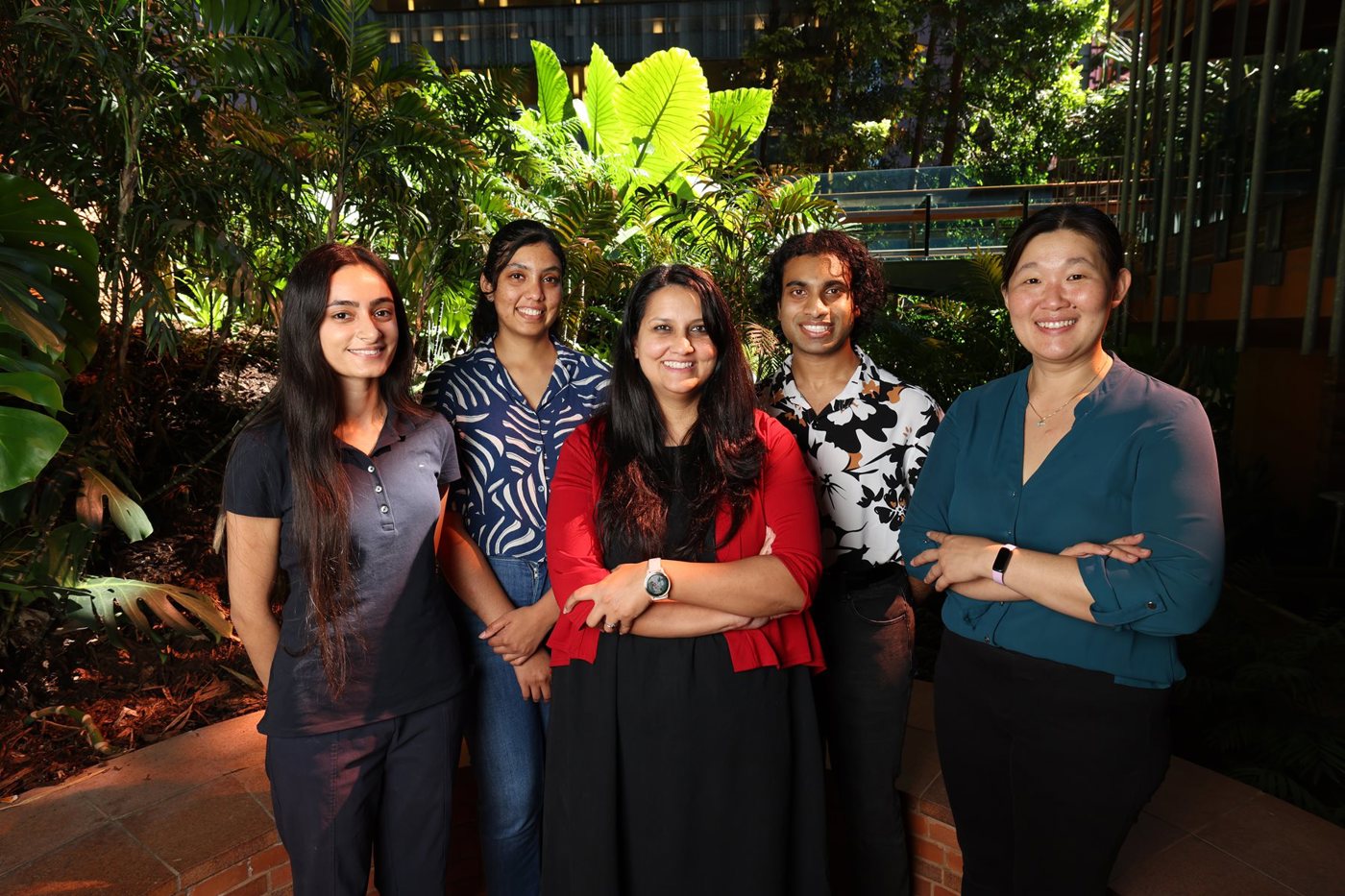
Mater Research Immunopathology Group: Priyanka Jaisinghani, Deepna Balakrishnan, Prof Sumaira Hasnain, Thishan Illankoon and Dr Kuan Yau Wong,
Beyond her scientific pursuits, Prof Hasnain is passionate about outreach, delivering hands-on immunology workshops to students from Year Three to high school.
She is also a passionate advocate for equity, diversity, and inclusion (EDI). As Chair of the Australian and New Zealand Society for Immunology’s EDI Committee, she has supported initiatives such as free memberships for Aboriginal and Torres Strait Islander researchers, fostering greater inclusion within the scientific community.
“Now, I’m committed to paying that forward—supporting early-career researchers and students so they can thrive as I have,” she said.
Mater Research Executive Director Professor Allison Pettit congratulated Prof Hasnain’s milestone and said the institute was deeply committed to nurturing and advancing the careers of talented researchers.
